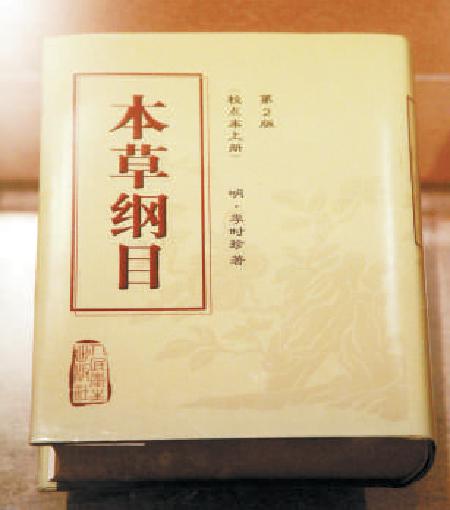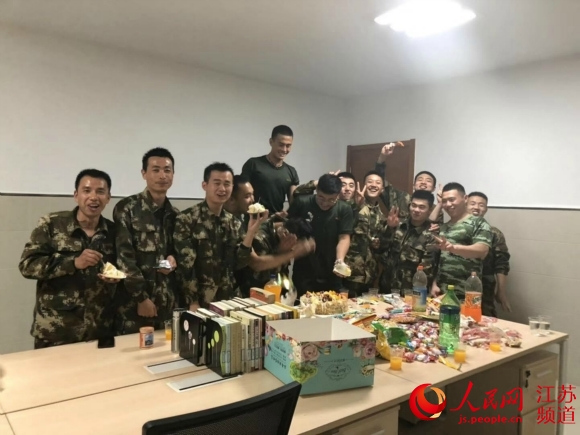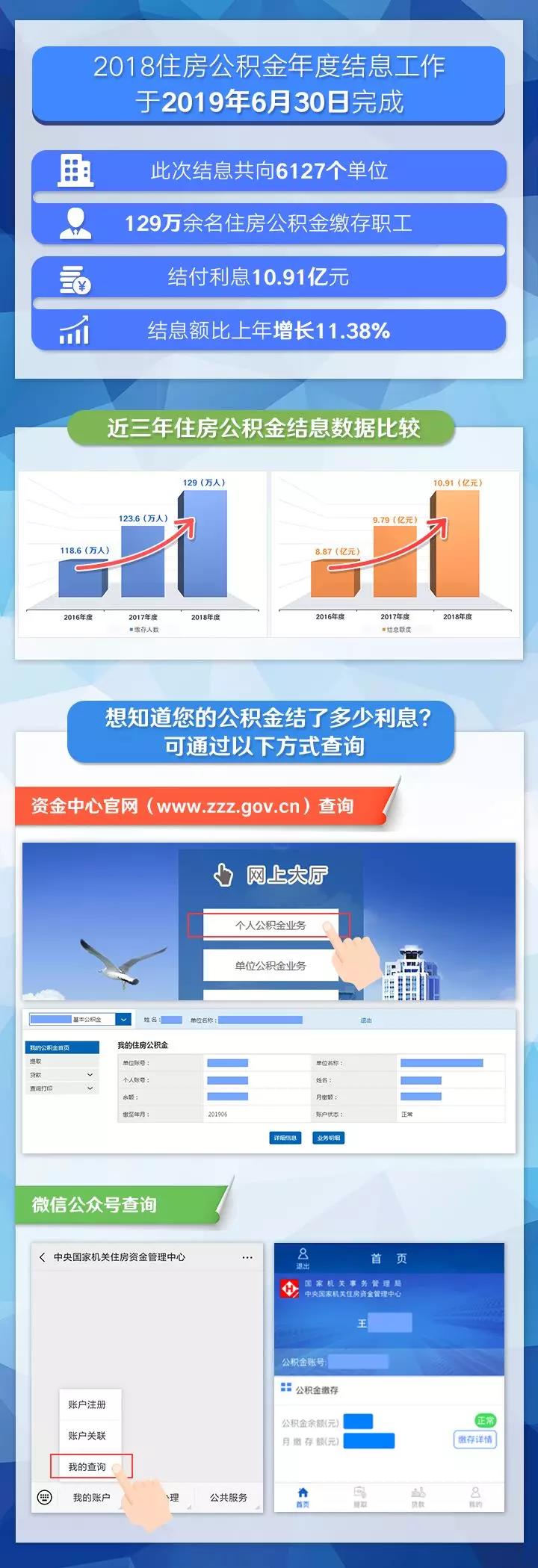Zhang pinqiu
When each layer of forest is fully dyed, clusters of round hawthorn fruits bloom with red smiles on the branches, adding a joy to the harvest season. Hawthorn is one of the oldest and most common tree species in the temperate zone of the northern hemisphere, and its fruit — — Hawthorn can also be called a treasure food. Even in some important historical events in the west, it has its shadow.



It was regarded as wild fruit for a long time in ancient times.
Crataegus pinnatifida is a perennial woody plant of Rosaceae, which is native to temperate regions of the northern hemisphere, mostly wild, and has many varieties in Asia, Europe and North America. In China, there are mainly two kinds of hawthorn, namely, South Hawthorn and North Hawthorn, and there are more than 30 varieties, such as sour hawthorn, hawthorn and fat fruit. Generally speaking, Nanshan hawthorn fruit is small and sour, mainly used for medicine; The hawthorn fruit in Beishan is large, fragrant and moderately sweet and sour.
Crataegus pinnatifida, which originated in ancient times, was not named by this name at first in China. The "pestle" recorded in Erya two thousand years ago is considered to be the ancient name of hawthorn recorded in the early literature of China. Because in the Ming Dynasty, Li Shizhen quoted according to Guo Pu, a scholar in the Jin Dynasty: "Erya says: ‘ The tree is like a plum, its son is as big as a finger, and it is red and edible. ’ This is hawthorn. " Hawthorn was also called Monkey Hawthorn and Rat Hawthorn in ancient China, because "monkeys and rats like to eat it".
According to ancient records, our ancestors knew that wild hawthorn could be eaten more than two thousand years ago. However, for a long time, hawthorn was only a kind of wild fruit, and it was not cultivated artificially and became the main fruit. There is no hawthorn in the 14 kinds of fruits listed in Zhou Shu and Li Ji, which are "for offering sacrifices and enjoying guests". Hawthorn was mentioned in Guang Zhi, a natural history book written by Guo Yigong in Jin Dynasty. The book said that Hawthorn: "Mu Yi is long, with a variety of salaries and fertile fields." It can be seen that most hawthorn trees were still in the wild at that time, and people occasionally collected hawthorn fruits as food to satisfy their hunger. The main use of hawthorn trees was firewood or fertilizer accumulation.
The main reason why hawthorn was regarded as a wild fruit for a long time in ancient times was that it was sour. In fact, the sugar content of hawthorn fruit is more than twice as high as that of apples and pears, but why do people still feel that hawthorn is much more sour than apples and pears, and it is often even "sour"? This is because the content of organic acids in hawthorn pulp is two to three times higher than that of apples and pears. The high content of organic acids dilutes the sweetness of sugar, so hawthorn tastes more sour than sweet.
By the Tang Dynasty, the status of hawthorn as a wild fruit had been slightly improved, and it had been given to guests as a local product by the villagers. Liu Zongyuan, a great poet, wrote in the article "Talking with the Twenty-eighth Dean Liu about the old words and feelings, and sending gifts to Lizhou": "My son gives bitter bamboo shoots, and my father gives sour hawthorn." It can be seen that its status at that time was similar to that of bitter bamboo shoots, but it was still far from the good fruits such as peaches, dates and pears. It was not until the Qing Dynasty that Beijing cake made of hawthorn, also known as golden cake, was regarded as one of the "best food in the imperial capital", and hawthorn became a regular fruit.
2 Spleen-invigorating and appetizing Beijing flavor food
The remarkable improvement of the status of hawthorn has a great relationship with the discovery of the medicinal value of hawthorn by famous doctors such as Zhu Danxi in Yuan Dynasty and Li Shizhen in Ming Dynasty. "Compendium of Materia Medica" records: "Ancient prescriptions are rarely used, since Zhu’s contribution to hawthorn in Danxi, and then it became an important medicine." The utilization of hawthorn in traditional Chinese medicine mainly uses fruits. Physicians in Yuan and Ming Dynasties found that hawthorn is mild in nature, sour and sweet in taste, and enters the spleen, stomach and liver meridian, which is a good medicine for invigorating spleen and appetizing, resolving food stagnation, promoting blood circulation and resolving phlegm.
Hawthorn has a remarkable effect in promoting digestion and resolving stagnation. In TCM clinic, all types of food stagnation, whether it is overeating high fat, protein’s "meat accumulation" or overeating rice and flour "grain accumulation" and "area", can be eliminated by using hawthorn. Relatively speaking, the digestion effect of hawthorn is better for the "meat accumulation" caused by overeating fat and protein. In this regard, there are relevant experimental records in Compendium of Materia Medica: "Boiling old chicken and hard meat, adding a few hawthorn is easy to rot. Then it will eliminate the accumulation of meat, and the cover can be pushed. " Therefore, when we stew meat daily, we add a few hawthorn to stew it together, and the meat is particularly easy to rot. Hawthorn is not only used as a single medicine to treat diseases, but also forms various prescriptions with other Chinese medicines. For the "grain accumulation" and "area" caused by overeating rice flour, hawthorn can be made into fried three immortals or burnt three immortals with malt and medicated leaven, which can digest fullness and belching. In the "Baohe Pill" created by Zhu Danxi, a famous doctor in the Yuan Dynasty, hawthorn is the main component, and it is made into pills with Massa Medicata Fermentata, Pinellia ternata, Poria, Pericarpium Citri Tangerinae, Forsythia, and Radish Seed, which is mainly used to treat gastrointestinal dyspepsia, nausea, anorexia, food stagnation, abdominal distension and pain caused by it, and constipation. Hawthorn pill, which is commonly used to treat infantile dyspepsia, is also derived from the formula of Baohe Pill.Modern medicine has found that flavonoids in hawthorn can resist free radicals harmful to human body, thus regulating immunity.
After more than a thousand years of cultivation, the taste of hawthorn today is far from that of "sour hawthorn" of Liu Zongyuan at that time. In northern China, the mature maslinic acid is sweet and has a unique flavor. When eaten as a fresh fruit, it can be eaten directly to promote fluid production and quench thirst, or it can be made into fried red fruits and Sugar-Coated Berry, or it can be juiced for drinking. There are many forms of dried hawthorn, which can be directly soaked in water as a substitute for tea, and can also be processed into delicious snacks such as hawthorn slices, hawthorn cakes and fruit moutan. Hawthorn cake is also called Beijing cake or golden cake, and Beijing cake and shredded pear is a delicious and refreshing classic cold dish in Beijing cuisine. Various forms of hawthorn products not only enrich people’s taste buds, but also play a certain role in health care.
Although hawthorn is good, there are several points to pay attention to when eating. Traditional Chinese medicine believes that hawthorn should not be supplemented, and it should not be taken with ginseng and other supplements at the same time, so as not to offset the nourishing effect of ginseng. People with weak spleen and stomach should not eat more, and healthy people should eat it in moderation. Because of its high acidity, it is best not to eat on an empty stomach. Snacks such as hawthorn slices and cortex moutan contain a lot of sugar, so children, especially those who are changing their teeth, should not eat more. Brush your teeth and rinse your mouth in time after eating hawthorn products to avoid dental caries.
Hawthorn trees that influenced western history
Hawthorn not only has high edible and medicinal value, but also has high face value. Hawthorn trees bloom in early summer, and the flowers are as white as snow; In midsummer, the foliage is lush and the shade is covered; There are many red fruits in late autumn, and when the snow falls on the branches, it is beautiful. In Europe and North America, hawthorn is a very common greening tree species, and it has also witnessed some major events in the history of Europe and America.
Hawthorn trees bloom in May and June, and the flowers have a unique fragrance, with about 15 to 30 flowers in a cluster. Most of the hawthorn flowers in China are white, and most of the hawthorn flowers in Europe and America are pink and red. In Europe, Britain, France, Sweden and other countries, hawthorn flowers are called Mayflowers and hawthorn trees are called Maytrees. In rural Europe, May Festival is celebrated every year. At this time, every household will decorate the courtyard with the branches of hawthorn trees, and people will sing and dance around the "Maypole" to worship the tree god and the grain god, praying for good weather and abundant crops. "Maypole" is a hawthorn tree wrapped with ribbons, symbolizing hope and harvest. In recent years, China has introduced the British hawthorn varieties "Hongyun" and "Hongbaoluo" for flower viewing, and the flowers are bright and dazzling, adding a touch of new color to the early summer of our cities.
The leaves of hawthorn tree are edible. In Britain, young leaves in early spring can be used to make salads. The buds of hawthorn can also be eaten. In the English countryside, people call the tender leaves and buds of hawthorn "bread and cheese". The wood of some hawthorn varieties is very hard and very resistant to decay, and it is often used as tool handles and fence posts in rural North America. In carving, hawthorn is also the best substitute for boxwood.
The beautiful and practical hawthorn tree is actually very easy to feed. Hawthorn trees grow fast and can blossom and bear fruit in the third year after planting. It has a wide range of adaptation to temperature, and the annual average temperature is between 4.7℃ and 16℃, which can meet its survival needs. Hawthorn tree has strong adaptability, drought resistance, waterlogging resistance, barren resistance, good life in neutral or weak acid soil, pruning resistance, extensive management resistance, less pests and diseases, and can maintain good landscape effect even if it is left unattended for many years after planting.
Perhaps it is precisely because of the above advantages that hawthorn has a close relationship with some important events in western history. One of the most famous is the enclosure movement during the British industrial revolution, when people used hawthorn trees to enclosure. The British Parliament approved enclosure as a legal act in 1688. During the enclosure movement in the 18th and 19th centuries, Britain planted more than 200,000 miles of hawthorn hedges. One of the important reasons why people use hawthorn as a fence is that hawthorn grows vigorously, has many branches, takes shape quickly, has dense branches and sharp thorns, and is the most ideal fence to resist the invasion of animals and humans. The English name of hawthorn tree is Hawthorn, in which thorn means thorn. Since the enclosure movement, hawthorn hedge has become a natural hedge popular in Europe and America. In the famous Normandy military operation during World War II, French villagers planted a maze-like hawthorn hedge, which almost led to the failure of the Allied action. In 2018, the Commercial Press published a book "The Legend of Hawthorn Tree" written by American writer Bill Vaughan, which introduced in detail the important influence of this ordinary tree species on European and American history.

White hawthorn flower

thornbush

Pink hawthorn flower
4 Red fruits with rich meanings in poetry and painting
Hawthorn, which has a long history and is widely distributed, has also appeared frequently in literature, painting, songs and movies at all times and in all countries. Due to the different customs and histories of different ethnic groups, the symbolic meanings of hawthorn fruit and hawthorn tree are different in eastern and western cultures. However, with the deepening of globalization and increasingly frequent cultural exchanges, this difference in hawthorn images is gradually becoming smaller.
In China’s classical literature, hawthorn, as a wild fruit, is a symbol of tranquility, indifference and unpretentious. A poem "Singing Hawthorn" written by the monk Zhiyi is a typical one: "The branches bend fiercely with the sun setting, and the head is held high in the wind. With a smile in the leisurely years, I am indifferent to the sour fruit of life. " Lu You, a great poet in the Southern Song Dynasty, also wrote about hawthorn many times. The most popular one is "Traveling": "When you walk all the way into the valley, you are a donkey to rest in a wild family. Shan Tong bears the burden of selling red fruits, and the village girls pick blue flowers on the fence. Cooking on the bonfire will make a meal, and the spring will cook tea in the afternoon. There is no way to travel, so why not laugh? " The sentence "Shan Tong pays to sell red fruits, and the village girls pick blue flowers from the fence" outlines a colorful and dynamic pastoral scene with the method of line drawing. Lu You has mentioned "red fruit" many times in his poems, such as "red fruits are numerous and green, and they are still sour before frost", describing the hawthorn that is not yet fully mature; "When the red fruit is ripe, the clear shade is gradually becoming", which describes the hawthorn tree planted in your own yard.
Hawthorn is a frequent visitor in Chinese painting. Among the flower-and-bird paintings handed down from the Song Dynasty in Shanghai Museum, there is such a picture of a red fruit and a green snipe, which frames the interesting moment when the green-haired snipe flies on the branches of hawthorn. In modern times, people like Qi Baishi, Wu Changshuo, Pan Tianshou, etc. also like to draw hawthorn, so as to express a simple and plain attitude towards life.
In modern literature in China, the red hawthorn fruit is a symbol of love. One of the representative works of the poet Haizi is Hawthorn Tree. In Haizi’s eyes, the goddess in his heart lives on the hawthorn tree, and the fiery fruit of hawthorn is as warm as Van Gogh’s sunflower. In this century, The Love of Hawthorn Tree written by writer Amy shows beautiful and pure love, which was later put on the screen by director Zhang Yimou and became a well-known classic love movie.
In fact, hawthorn represents love influenced by the Soviet song Hawthorn Tree. This old song spread in China in 1950s and 1960s, and expressed a young woman’s perplexity in the face of two young men who adored her. The song has a beautiful melody and has been covered by many domestic singers. But in fact, the original Russian name of the song is "Sorbus Urals", which was translated into hawthorn tree because it has white flowers in summer and small red fruits in autumn, just like Sorbus Urals, and its popularity in China is far less than that of hawthorn. Later, Chinese people generally recognized this cultural interpretation, and hawthorn became popular as a symbol of love in China literary world.
In European and American cultures, hawthorn trees represent thorns and isolation, while hawthorn flowers represent hope. In 1620, in order to avoid religious persecution, more than 100 British Puritans and more than 30 sailors sailed to the New World on the ship "Mayflower", which opened the history of North America. "Mayflower" is hawthorn flower, which indicates a new world full of hope.
Extended reading
Kangxi and Cortex Moutan

When it comes to delicious snacks made of hawthorn, Cortex Moutan is no stranger to everyone. But you know what? It also has a legendary story in the ancient military history of China, which makes future generations sit up and take notice of this ordinary snack.
According to records, galdan, the leader of Junggar Department, one of the four Mongolian departments, led troops to annex the other three Mongolian departments, and made several invasions. Emperor Kangxi led a personal expedition to conquer galdan. At the front, in order to prevent information from leaking, the Qing army secretly wrote the information and instructions transmitted between Emperor Kangxi and the important generals in ink on the peony bark, rolled them into cylinders and delivered them by special personnel. After reading the information and secret orders, the generals and relevant personnel ate the cortex moutan and disappeared. In this regard, in March 1697, Gao Shiqi, a poet and calligrapher who fought in galdan with Kangxi, wrote a poem "Fruit List" on his way to Ningxia: "I am red, oily and thin, smooth and light, and my powder and wax are even. When the grass strikes, the military books are still gone, and the mouth is exhausted. " Gao Shiqi wrote in the poem’s self-note: "Hawthorn is boiled for it, which is as thin as paper, even and clean, and can be rolled up, so it is named fruit list, which tastes sweet and sour and quenches thirst." It is said that after reading the poem "Fruit List", Kangxi thought it was very appropriate and praised "Yi Se Yi Wei, Da Xin Da Qing".
"Oil fist" and "powder wax" written in Gao Shiqi’s poems are famous high-quality tissue paper names in Tang Dynasty and Song Dynasty respectively, which are used to describe the cortex moutan used to write intelligence secret orders. It’s not hard to imagine, on the March of camping in the wind, after eating these fruit moutan, not only will the thirsty mouth immediately produce saliva and moisten, but also the operational information and secret orders will be wiped out. At that time, the ink used for writing was mainly made of ash from burning pine trees. This kind of pine ash is also a kind of traditional Chinese medicine. According to Compendium of Materia Medica, it has the effects of "stopping bleeding, generating skin and treating alloy sores". The so-called "alloy sore" means promoting the healing of wounds caused by metal knives and guns. Therefore, writing military intelligence with cortex moutan and pine ash was really wonderful at that time.
Tasty story
The origin of Sugar-Coated Berry

When it comes to the most popular hawthorn food, of course, Sugar-Coated Berry is the only one. The bamboo stick wears a bunch of hawthorn, dips it in the fiercely cremated ice syrup, and when it cools naturally, it is bright red in the crystal, crunchy, sour, sweet and sticky, which is the unique winter memory of northern children.
There is a folklore about the origin of Sugar-Coated Berry. According to legend, during the Southern Song Dynasty, after a banquet, Song Guangzong’s beloved princess suddenly got a strange disease, abdominal pain, tea and rice, and her body became thinner. In the DPRK, all the doctors believed that this was caused by physical weakness, and they used a lot of supplements, but they did not get better. In desperation, the court posted an imperial list to the society to recruit famous doctors for diagnosis and treatment. A walking doctor unveiled the list and went to the palace to treat the imperial concubine. After feeling the pulse, he said, "The imperial concubine’s illness is not serious. Just cook it with hawthorn and rock sugar, and eat five or six tablets every meal." Sure enough, the princess’s appetite gradually improved after eating, and it didn’t take long to restore her former appearance. Later, the practice of hawthorn spread to the people, and the people put it on one by one to make today’s street food — — Sugar-Coated Berry.
This edition of pictures: vision china, IC Photo.












